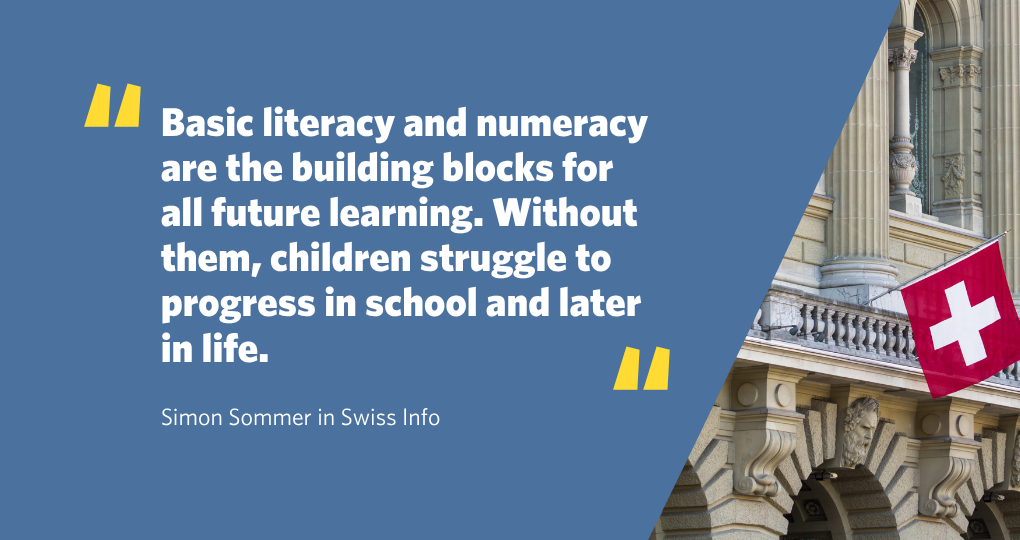Share Content
Article Link Copied
Smarter spending for stronger learning: the role of philanthropy in times of scarcity

As global education budgets tighten, ensuring that every franc or dollar delivers meaningful results for children has never been more important. A recent article by Swiss Info highlights the growing pressure on education funding worldwide, and the role philanthropy can play in driving more effective, evidence-based investment in learning.
In the face of declining aid from major donors, including the United States, Switzerland, and the United Kingdom, the Jacobs Foundation Co-CEO, Simon Sommer explains that the challenge is not only how much money is available for education, but how effectively it is spent.

The Jacobs Foundation’s approach focuses not just on funding but also helping governments and partners make better use of existing resources through evidence, capacity building, and cross-sector collaboration. From large-scale partnerships such as SCALE in Ghana to the CLEF initiative in Côte d’Ivoire, the Foundation works alongside ministries, researchers, and local actors to identify what works and build systems that can sustain progress over time.
This message has resonated across key moments for the global education community this year, from the UN General Assembly to the ADEA Triennale on Education and Training in Accra, where the Foundation joined ministers and partners to advance a shared call for evidence-informed policymaking and innovative financing. These discussions reinforce the outcomes of the Financing for Development Conference earlier this year, where education’s central role in sustainable development was recognized in the Compromiso de Sevilla, and where philanthropy was spotlighted as a driver of innovation in development finance.
Sommer emphasizes that the role of philanthropy is not to fill funding gaps left by official development assistance, but to act as a catalyst for smarter spending. That means investing in evidence-to-action partnerships, innovative financing mechanisms like the International Finance Facility for Education (IFFEd), and country-led solutions that build long-term government capacity.
When resources are limited, what matters most is how we use them. Every investment should help strengthen the systems that give children the best possible start in learning and in life. At the Jacobs Foundation, we’re committed to working with governments, researchers, and partners to turn evidence into action, ensuring that every franc invested in education delivers lasting impact for children around the world.